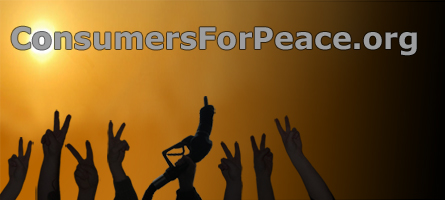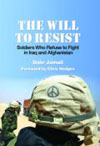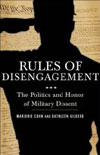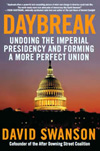Violence Threatens at Anti-War Church Visit Church Visit #10
With commentaries by Martha Conte, Gayle Dunkelberger and Debbie Kair
On Sunday, February 10, 2008, the First Sunday of Lent, Martha Conte, Gayle Dunkelberger, Margaret Eberle, Debbie Kair and I attended St. Patrick’s Catholic Church in Bedford Village, New York in our bannering campaign to encourage clergy to speak out publically for an end to the occupation of Iraq.
What we found was an usher who came close to physically pushing us out of the church and who, once outside, tore the banner from Margaret’s hands, crumpled it up in violent twisting motions, threw it on the ground and stomped on it, shouting at us to leave.
At the front of the church, as we held the banner for exiting parishioners, we were verbally assaulted by another man who threatened us physically unless we departed.
The tension was so great that a number of parishioners stayed within the church vestibule, peering out of the door until we, sensing the likelihood of physical assault by the man, folded the banner and prepared to depart.
As we walked down the sidewalk on the Bedford Village Green away from the church, someone in an SUV leaving the church barked like a dog at us, and another in a small silver-gray station wagon shouted: “Morons”.
Before talking more about what we experienced I want to explain that this was our second visit to St. Patrick’s. Gayle, Martha, Margaret and I went first on Sunday, January 27 also to the 10:30 a.m. service. We intended to wait for a pause in the service, such as at the announcement period, to stand and hold up our banner, as we have at other churches in Westchester County.
However, we were not able to plan for an appropriate time to lift the banner because the church does not provide a bulletin or program specific to the services that would enable us to choose a time for this. In addition, the service was conducted so quickly and seamlessly that we decided it best to refrain from lifting the banner in the church, instead holding it up outside the entrance so that people would see it on their way out.
Holding the banner on the 27th, we were addressed by only two people. One, a short woman in her 60s or early 70s, spoke softly to us, telling us she was French and, holding her gloved hand to her mouth to shield her words from sight, said we knew how the French stand on the war. The second was a woman in her late 30s or early 40s, who said she too opposed the war and that she did not want her children to have to fight. Her children, whom I recall to be a boy and girl, appeared to be less than 10 years old.
Everyoneelse seemed to ignore us, with one group of people standing right in front of us exchanging conversation and pleasantries as though we did not exist.
We decided that day to return to the church, for several reasons. First, we wanted to see if we would stimulate any greater response if we held the banner inside the church than outside. In addition, the congregation that morning, which numbered about 200 and filled the church, had more people in their teens, particularly young men, than we had seen in any other church. We felt it was particularly important to raise the issue of the Iraq War to them. Now knowing the structure of the service, we decided raise the banner at the time when the service pauses so that parishioners can greet each other, the “exchange of the peace.”
On our visit on February 10th, we found the church, a simple stone structure of a traditional design, again had about 200 people attending, with about 25 percent teenagers or younger. On both visits, I saw only a few non-white faces, several who appeared to be Indian and two who were Asian; I saw no Aftrican-Americans.
And on this visit, we were joined by Debbie Kair, a former Maryknoll Sister and a Catholic, who said that the exchange of the peace would be the right time to raise the banner.
The service was conducted this morning by St. Patrick’s pastor, the Rev. Monsignor George P. Thompson. In his homily, or sermon, Monsignor Thompson, who appeared to be a gentle, good-humored man, spoke about Jesus being tempted in the desert by the devil and that we, like Jesus, must aspire to integrity. He referred to the play “A Man for All Seasons”, relating that the protagonist of the play Sir Thomas More, facing death, says: “All I have to do is lose some integrity, (then) it all drains away.”
At the exchanging of the peace, we rose from our seats at the right-hand, front of the church and held the banner aloft as high as our arms could reach so that as many as possible could see it.
3,800+ U.S. Soldiers Killed - Thousands Wounded
1 Million Iraqis Killed - Millions Displaced
Much of Iraq and Its Culture Have Been DESTROYED
The U.S. has spent $456 billion - $3 Billion from Westchester (County)
As the rest of the congregation sat down, Monsignor Thompson began to read the Eucharistic Prayer (the communion prayers said weekly at Mass). I could not see him from behind the banner, but I could hear him continuing to read, without a pause or interruption.
He continued to read, and we continued to hold the banner up for what seemed to me several minutes. I was surprised that no one spoke, not Monsignor Thompson or anyone from the congregation.
Then I heard some words, looked to my left, and a tall man in his early 50’s was pushing behind us and telling us to leave. He came behind Martha and Gayle to my left and moved Debbie, Margaret and I toward the front of the church to go out a side door. At some point he grabbed the banner, which is made of a heavy vinyl, and started to pull Margaret along as she was the only one now holding onto the banner.
As I cleared the side door and looked down to the sidewalk, I saw the man wrench the banner away from Margaret and start trying wildly to tear it up, failing, he then tried to crumple it into a ball and failing in that, he hurled it on the sidewalk as hard as he could and stomped on it repeatedly. He shouted at us: “Get out of here right now”, and he went back into the church.
We folded up the banner, and by that time Gayle and Martha, who had been escorted out of the front door of the church, joined us.
We decided that we would hold up the banner at the front of the church so that, as the people left the church, we could compare their response with what we had experienced on Jan. 27th. As the communion was being completed, we took up the same position we had occupied before, in a small patio area just off the path to the front door.
The first several people leaving church walked past us, averting their eyes and reluctantly saying “Good Morning”, returning our greeting. Then a man in his 50s, who appeared to be Middle Eastern, told us we should go to the country of the people who started the war. We offered to talk with him, but he did not want to talk and walked away.
Almost immediately, a man who appeared to be in his late 30s or early 40s, accompanied by a woman and at least two small children, came over and told us to get out, that we had no business being at the church. He asked if we were Catholic, and Debbie said that she was and that the church is a correct place for our witness.
He said that church has no connection with what the government does and that if we did not fold the banner and leave immediately, he would throw us off the property. He was extremely agitated and began speaking more loudly. By this time, the woman and children had moved a way off, onto the grass, and the woman held the children as if to shield them.
People had gathered in the vestibule and the few people on the church path stopped, seeming immobilized.
The man went into the church. Debbie said that she thought we should fold up the banner to avoid violence. Within a few seconds, the man came out of the church, still enraged and moved toward us. Seeing we were folding the banner, he calmed down somewhat.
I told him that we didn’t like to be threatened. He said we did not know what it is to be threatened. He also said that if I didn’t like it, I should “call a cop.”
Another man joined him on the path and said we should leave. I told them that I had been in Viet Nam, and that I didn’t want to see it happen all over again. The older man said he had been there too, and we should leave.
As I started to go, I saw three boys on the church steps, probably aged 12 or 13, who had come out with others now that the trouble had subsided. One, in white shirt with no coat, had a delighted grin, apparently liking the excitement, and he said he wanted to see the banner. I began to unfold it, but then he said no that’s OK, and I told him not to go into the Army.
I then joined my colleagues across the street. Martha decided it might be good to give one of our cards to the boy in the white shirt, should he want to talk more, and she went back across the street into the crowd in front of the Church. She retuned to report that the boy had not wanted the card, but that one of his friends took it.
As we walked away, we got the insults noted above. When we reached the Near and Natural grocery/café where we intended to have coffee, a large GMC SUV pulled up next to us, and the driver, a man, said something like “Nice work” in a cordial way that proved to be sarcastic. He, and his wife leaning across the seat in front of him, told us we should not have come to the church with the banner.
They came into the grocery with us as they had food to buy. Inside, they continued to talk at us about the incident, not wanting to hear responses. I told the woman that I regretted having to go to churches with the banner, but that the war has been going on for five years now, and people are continuing to die. She maintained that we should not have gone to the church and that it was counterproductive. Debbie spoke with her also, and by the time we left, I thought she looked somewhat less sure of her position.
She comes with two arguments:
First, she says “Haven’t you always told me that God listens more to the words of the heart than those of the mind? So say the words of the oath, and in your heart think otherwise.” To which More replies:
I’ve heard this movie recommended in Catholic schools, but I am afraid they do so because in their mind Moore defended the Church against the war on the church and the Pope undertaken by Henry VIII. It is really a shining example of integrity, hence “The Man for All Seasons”, for all times, for all faiths, for all human beings.
In the second argument, Meg claims “if the state was half way good, you would not be here” to which More replies: “Yes, the state is three quarters bad, all the more reason to be steadfast” or words of that nature, put more elegantly by More. That too is very appropriate.
This state is three-quarters bad, a President and his ilk are war criminals. What our society does is normalize the unthinkable. Hence our stand. The churches are too complacent. I think they know it deep down in their hearts, but if they open their hands a little and let the truth in all its horror sink in, then there is no stopping the flood.
_________________
Counterproductive, because people get angry…a serious concern. However, if the piece we present was subtracted, does anyone believe things would possibly be…productive?
I try to get perspective. Perspective on this is really not difficult:
- 81.1% OF THE U.S. POPULATION IS CHRISTIAN/JUDEAO.
- CHRISTIANITY’S TWO MOST OBVIOUS TENETS:
- Thou shalt not kill. Deuteronomy 5:17
- Do unto others as you would have them do unto you. Matthew 7:12
- U.S. TAX DOLLARS ARE USED FOR KILLING…MILLIONS.
- PULPITS ARE VIRTUALLY SILENT.
- SILENCE IS CONFRONTED.
- REACTIONS ARE BOTH POSITIVE AND NEGATIVE.
I seem to conclude that the larger picture begs for rattling those cages.
_________________
Let me start this by saying that yes, I am a practicing Catholic.
Second, I will say that I was dismayed at the reception we received at St. Patrick's Church in Bedford.
The priest who said the mass explained earnestly in his sermon that Lent (the season Christian churches remember Jesus’ final days) as time of renewal, focuses on improving our relationships with God and with each other. Prayers contained a common theme of openness to the voice of God’s call in our daily lives. The congregation, an unusual mix of children, youth and adults participated to a high degree throughout the Mass in songs, responses and prayers.
To the verbal threats and physical intimidation used on us outside the church they did not react.
This points, of course, to a well-known failure of Catholic Church leadership to educate the faithful; however it also points to the failure of the members of the church to carry their faith outside the walls of the church and into their lives.
“You should be ashamed to disturb this sacred ritual.”
“ Church is a place for peace not dissension.”
However, Jesus’ actions while on this earth contradict these thoughts. Jesus brought his message to the people in their villages, temples and water holes. Matthew Chapter 9 recounts this. “Jesus made a tour through all the towns and villages, teaching in their synagogues, proclaiming the good news of the kingdom and curing all kinds of disease and all kinds of illness.”
In the book of John, Chapter 2, Jesus went into the temple driving out the money changers because he thought they were using the holy place for the wrong reasons. His action caused much confusion among his believers and anger among the religious leaders.
In the same book, chapter 11, Jesus hears of the illness of his friend Lazarus. Disregarding his own safety, Jesus returned to the very village that had earlier threatened to stone him to death.
Chapter 9 reveals that the religious leaders knew that Jesus was not from God because he did not keep God’s laws. He healed a blind man on the Sabath. Once again his actions created division among his followers, religious leaders and villagers.
Iraqis have had their daily life, families, friends, religious practices and prayers beseiged upon constantly. It is only us, the aggressors and bullies of the war who have the luxury of discussing these issues. And we complain that they cause unsettling feelings, disagreement and dissension. Iraqis have no such option.
In the end, the way we were treated is not protecting sacred space; it is about intimidating people so that the discussion does not come up, and the protected world we live in remains cozy, artificial, unruffled.
I will continue to bring the needs of Iraqis to the people of the U.S. and specifically, Christians. I will be one voice that will not allow us to live in (deluded) peace.





